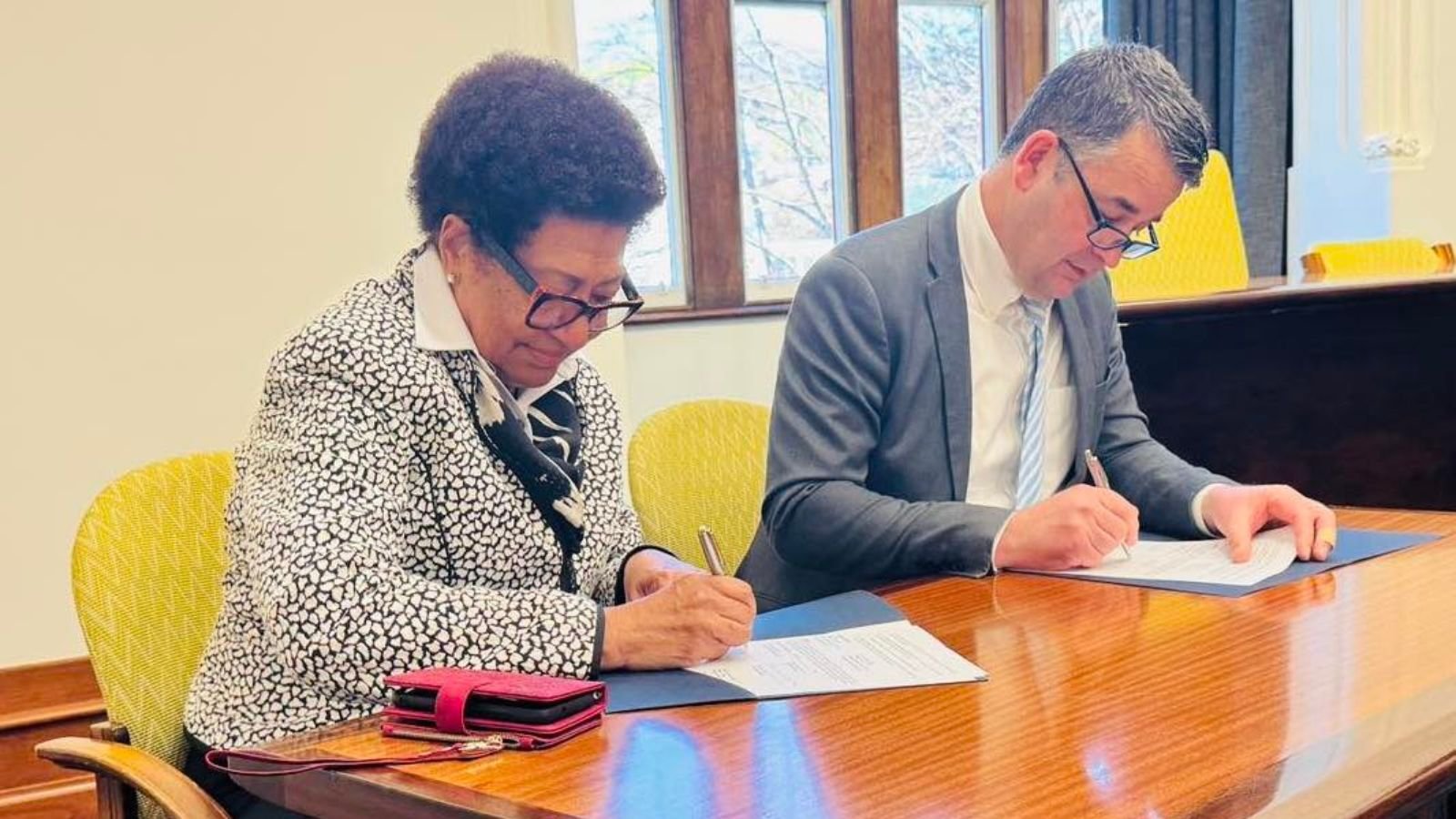Public Interest Journalism funded through NZ On Air
A sold out event at Auckland University’s Fale Pasifika celebrated the launch of a social enterprise called Fibre Fale earlier this month. Co-founders, Julia Arnott Neenee and Eteroa Lafaele belong to the one percent of tech professionals who are Pasifika women.
Technology is New Zealand’s third largest export sector and has grown almost twice as fast as the general economy since 2015. Despite this growth, Pacific people make up only 2.8% of people working in technology, far below the population size of more than 8%.
Having identified barriers holding Pasifika people out of tech, Julia and Eteroa started initiatives to address them.
Eteroa, a Digital Evangelist at Xero, saw that the lack of devices was stopping young Pacific people accessing online learning during Covid. She set up an organisation called Digi Tautua, collecting and refurbishing donated laptops, and delivering them to students and families in need.
Speaking at the launch, Eteroa says, “Now being a software engineer is, crikey, it’s a hard job, the reason why – you already know, there’s not many of us.”
So for the last how many years I’ve been actually going into our schools, our churches, our communities, and actually in our family’s homes to teach, to influence and to give them the tools of technology.”
This is my heartbeat in a lot of the things that I do. I can get a degree and do all the stuff, make lots of money, but a big blessing is also to create that pipeline for our people,” says Eteroa.
After a successful career that saw her rise to the position of Global Social Strategy Lead for Hewlett Packard, working in the United States, Julia returned to Aotearoa in 2020 and founded an organisation called PeopleforPeople to address digital inequity.
In 2021 she was selected to be a member of the Digital Council of New Zealand, an industry body advising the government.
Julia explains, “so digital inequity can be seen as a lack of access, a lack of trust, a lack of skills, lack of infrastructure. Our Pacific communities and multi-person households, 24 to 28% of us do not have access to the internet… If you don’t have access to the internet or to a laptop, how are you ever gonna consider a pathway in technology?”
Fibre Fale is the evolution of their respective initiatives in a multi-layered approach that provides devices, access, education, experiences and skills. Funders, who have committed to support over multiple years, include Foundation North, and The Spark Foundation.
It’s important to Julia that Fibre Fale operates at all stages of engagement with tech, from ability to access, through to gaining confidence and skills, so that Pasifika people are equipped to become leaders in the industry.
“I’m really tired of people using us for social procurement, for RFPs, for going after funding, but only ever having us at entry level roles and never wanting us to challenge them at the leadership table.
A big part about this is that I don’t wanna see us just consuming technology or just contributing to the (no offence), Zeros, (no offence), the Microsoft’s and the other tech organisations. I wanna see us creating them,” adds Julia.
Technology is New Zealand’s third largest export sector and has grown almost twice as fast as the general economy since 2015. Despite this growth, Pacific people make up only 2.8% of people working in technology, far below the population size of more than 8%.
Fibre Fale aims to achieve equal population representation in tech by 2042.












